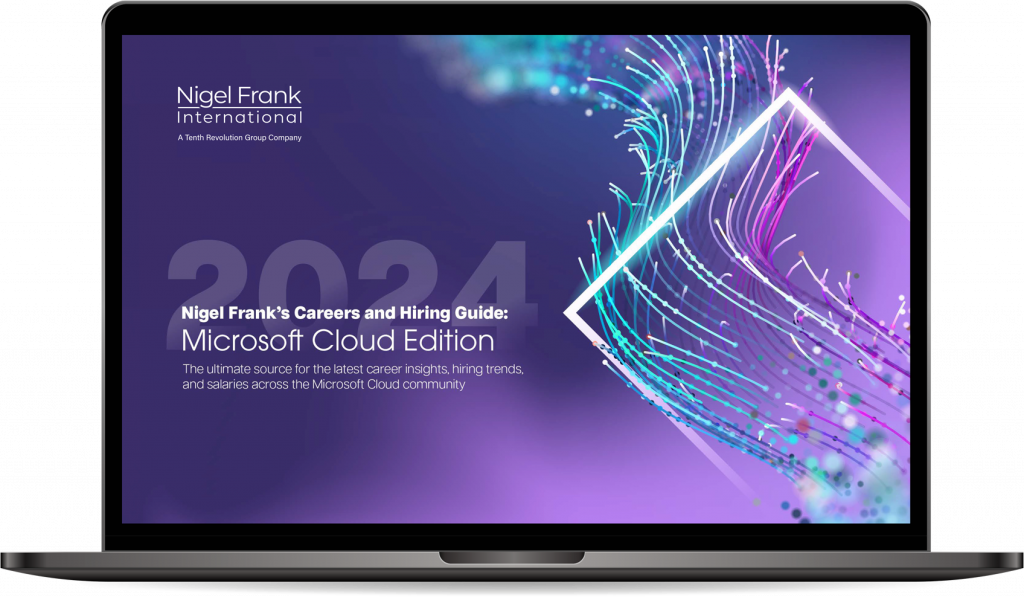Career Spotlights
Azure Data Engineer

Career Spotlights
Azure Data Engineer

How much do Azure Data Engineers make?
| Junior (0-3 years) | Mid-level (4-8 years) | Senior (9+ years) | Freelance (p/h) | |
|---|---|---|---|---|
| United States ($) | 132,250 | 159,750 | 193,250 | 102-143 (p/h) |
| United Kingdom (£) | 44,750 | 73,250 | 103,250 | 525-750 (p/d) |
| Germany (€) | 52,750 | 75,000 | 103,250 | 95-140 (p/h) |
| Switzerland (Fr) | 98,000 | 119,250 | 135,000 | 120-155 (p/h) |
Junior (0-3 years)
| United States ($) | |
| United Kingdom (£) | |
| Germany (€) | |
| Switzerland (Fr) |
Mid-level (4-8 years)
| United States ($) | |
| United Kingdom (£) | |
| Germany (€) | |
| Switzerland (Fr) |
Senior (9+ years)
| United States ($) | |
| United Kingdom (£) | |
| Germany (€) | |
| Switzerland (Fr) |
Freelance Rate
| United States ($) | |
| United Kingdom (£) | |
| Germany (€) | |
| Switzerland (Fr) |
71%
of Azure Data Engineers are satisfied with their job, up from 43% in our previous survey
50%
of Azure Data Engineers are satisfied with their salary, down from 57% in our last survey
47 hours
Permanent Azure Data Engineers work an average of 47 hours per week
41 hours
Freelance Azure Data Engineers work an average of 41 hours per week
What factors impact your earning potential as an Azure Data Engineer?
| Important | Neutral | Unimportant | |
|---|---|---|---|
| Years of technical experience with Microsoft products | 88% | 12% | 0% |
| Years of experience in IT | 84% | 16% | 0% |
| Exposure to large projects | 80% | 20% | 0% |
| Specific vertical industry experience | 76% | 20% | 4% |
| Microsoft certifications | 68% | 20% | 12% |
| College/University degree(s) | 52% | 28% | 20% |
Years of technical experience with Microsoft products
| Important | Neutral | Unimportant |
|---|---|---|
| 88% | 12% | 0% |
Years of experience in IT
| Important | Neutral | Unimportant |
|---|---|---|
| 84% | 16% | 0% |
Exposure to large projects
| Important | Neutral | Unimportant |
|---|---|---|
| 80% | 20% | 0% |
Specific vertical industry experience
| Important | Neutral | Unimportant |
|---|---|---|
| 76% | 20% | 4% |
Microsoft certifications
| Important | Neutral | Unimportant |
|---|---|---|
| 68% | 20% | 12% |
College/University degree(s)
| Important | Neutral | Unimportant |
|---|---|---|
| 52% | 28% | 20% |
What steps should you take to become an Azure Data Engineer?
Education
The majority (85%) of Azure Data Engineers hold at least a Bachelor’s degree. However, 43% consider a degree to be important to work with Microsoft Cloud, while 52% believe a degree to be an important factor when it comes to increasing earning potential.

What Microsoft certifications do Azure Data Engineers hold?
| Microsoft Certified: Azure Data Engineer Associate | 71% |
| Microsoft Certified: Azure Fundamentals | 53% |
| Microsoft Certified: Azure Data Fundamentals | 35% |
| Microsoft Certified: Azure AI Fundamentals | 18% |
| Microsoft Certified: Azure Administrator Associate, Microsoft Certified: Azure Developer Associate | 12% |
Certification
Over two-thirds (68%, up 64% from our previous survey) of Azure Data Engineers are certified and 59% of those have undergone certification renewal to maintain their Microsoft Certified status. Meanwhile, 88% (down from 91%) believe that certifications help make you a more valuable professional.
Budding Azure Data Engineers can start with the Microsoft Certified: Azure Data Fundamentals to brush up their foundational skills, before moving onto the Microsoft Certified: Azure Data Engineer Associate mid-level certification.
Roles that can lead to becoming an Azure Data Engineer
There’s no set path that is guaranteed to lead you to a role as an Azure Data Engineer. Data is a major part of any business today, meaning a career in data engineering can begin almost anywhere. Often, those working in roles involving data management or analysis are well-positioned to build a career as a Data Engineer.
Here are a few common job roles that we see these kinds of professionals starting their careers in:
- Junior Data Engineer
- Software Engineer
- Data Analyst
What skills and experience should Azure Data Engineers have?
- In-depth understanding of the entire ETL (extract, transform, and load) process and tools like Xplenty, Stitch, and Alooma
- Strong understanding of data architecture design, deployment, and maintenance
- Profound understanding of algorithms and data structure
- ETL logic-writing skills
- Ability to manage and warehouse both structured and unstructured data
- Experience developing and aggregating complex data pipelines
- Experience with a database administration and creating data stores
- Understanding of tools like Hadoop, Hive, Apache Spark, and Kafka
- Understanding of scripting and programming languages like R, Python, Java, and Scala
- Knowledge of SQL and NoSQL databases and querying
- Good grasp of machine learning concepts
- Familiarity with data platform technologies like Azure API Apps, Azure Cognitive Services, and Azure Search
- Knowledge of operating systems including UNIX, Linux, and Solaris
What are the opportunities for progression?


Are you looking to hire a Microsoft Azure professional?
Are you a job seeker?




